Welcome
I started this blog in 2013 to share my reflections on reading, writing and psychology, along with my journey to become a published novelist. I soon graduated to about twenty book reviews a month and a weekly 99-word story. Ten years later, I've transferred my writing / publication updates to my new website but will continue here with occasional reviews and flash fiction pieces, and maybe the odd personal post.
Connections: The Sweet Indifference of the World & The Aunt Who Wouldn’t Die & Coming up for Air13/7/2020 Mmm, seems I’ve chosen books with long titles for this threesome! But the reason I couldn’t bear to choose a couple and leave the other on the sidelines awaiting a partner is that they are all about characters connecting in unconventional ways. Firstly, I review a novella in translation about a writer meeting a man who seems to be a younger version of himself. In a second translated novella, a woman ensures that more than her memory lives on after her death. In the third, a literary novel, two women are linked via an invention that a third character plays an active part in developing.
8 Comments
I do enjoy exploring unexpected links between the novels I’ve been reading. A gritty story of the real-life dangers faced by illegal immigrants on the streets of contemporary Cape Town seems a world away from the remote homestead in 1920s Alaska in which Eowyn Ivey’s modern fairytale is set. Yet, apart from being debut novels and the happenstance of my reading them in sequence, both are stories of survival with an unusually pale-skinned girl at their hearts. In addition, The Snow Child also gives me an opportunity to acknowledge the writing of a couple of other bloggers whose support I cherish, while Zebra Crossing has served as the inspiration for my response to Charli Mills’s latest flash fiction challenge.
It’s some years now since I had any interest in holidaying abroad – or venturing on holiday at all, if I’m entirely honest – and my last trip outside Europe could well be part of the reason. This was a fascinating botanical tour of Madagascar but, because we were focused on the flora, our interactions with the local people were somewhat limited and often unsettling to my woolly-liberal constitution. I wrote about this in my post On Memory and Imagination on the publication of my short story, Silver Bangles, a fictionalised account of an incident on that trip that brought the disparities in wealth between the locals and the tourists into sharp relief. A similar encounter provided the material (if that doesn’t sound too disrespectful) for my water-themed flash. But a third uncomfortable event from that holiday – in which I dithered about donating my sunscreen lotion to a family with albinism seen from the comfort of our bus in a remote village – hasn’t yet made it into my fiction.  In terms of wacky ideas for a story, what’s your verdict on these? Henry Merriweather falls in love with a playing card; Dan and Evelyn cannot shuffle off this mortal coil until they finish the card game they began on their wedding night in 1928. Lady Farrimond plays cards with a stranger and forfeits her most treasured possession. Two brothers cannot agree even on the rules of a simple game like noughts and crosses; rioting has become a national sport with fixtures, policing, and the whole media circus; even Scrabble has become a dangerous game when the tiles spell out MURDER. 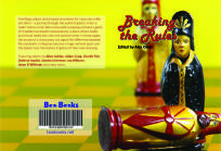 Breaking the Rules, a short story anthology edited by Alex Davis, is replete with such unlikely scenarios convincingly portrayed on the page. Published by Derby-based (very) small press Boo Books, this collection of thirteen stories buzzes with quirky creativity and eloquent prose. Unlike the editor, I’m not a particular fan of games, but I found myself entertained by the stories and in awe of the depth and breadth of creativity on show. 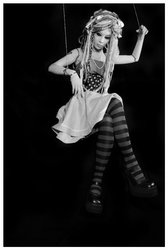 A good actor reveals a great deal about the character they are portraying even before they open their mouths to speak. It's not just down to clothes and make-up, but how they inhabit their bodies, how and how much they move. A writer faces a similar challenge in embodying her characters but, being cerebral creatures, we might pay more attention to imagining ourselves into another mind living through another situation than writing from the appropriate physical perspective. In the wonderfully wacky film, Being John Malkovich, a puppeteer discovers a portal into the actor’s head. While I’d hesitate to imply I understand what such a complex story is about, the motivation for returning to the portal seems as much about controlling another’s mind as his body. Rather like a writer, don’t you think?
For the movie’s female characters, there’s the frisson of gender-bending sex that makes me think of the female writer writing from the male point of view. I don’t know about other female writers, but when I’m a male narrator, unless he's having sex or going to the toilet, I tend to think of the dangly bit between his legs in symbolic, rather than flesh and blood, terms. Yet at some level we need to convey our characters’ gender, age and physique through their bodies as well as their minds, and to experience those bodies from the inside out. Does a fat person occupy a chair differently to a skinny one: the first squeezing into a confined space and the second getting bum-ache if you leave them sitting too long with insufficient padding? Would a short person notice different things to a tall one as they walk down a street because their gaze is at a different level? What difference does it make to have big feet, or small? To piss from a standing position or sitting down? Complicated stuff? It might be easier, in some ways, to create characters with unusual or distorted bodies, than to write from an ordinary body that is not one’s own. But woe betide the writer who lets her attention lapse, even momentarily, and retreats into her own physique. I had great fun writing about Tamsin, a young woman who wakes up on the morning of her wedding to find that her neck has grown as long as her arm. But with every revision of the story I had to check on the physicals, walking about the house with my hand in the air where I reckoned her head would be to ensure I hadn’t fudged the mechanics. How is your own writerly kinaesthesia and do you have examples of convincing and unconvincing literary bodies to share? 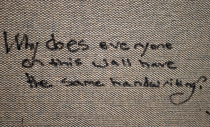 In my early days of blogging, I took the 0 Comments by-line at the top of so many posts as an indictment my writing skills. I needed more than the spikes on the website stats chart to convince me I had any readers at all. Six months on I'm happy for you to use the site in any way you like as long as it's legal and decent, but still a little puzzled that so few of you seem to want to leave your mark. Are you all fans of detective fiction, donning kid gloves to come visiting, or has that great poet Leonard Cohen convinced you that true love leaves no traces? That's all well and good, but I can't help wondering if you might enjoy the blog more if it were interactive. A few words for the hesitant. The system asks for your email address: this is standard practice, presumably to deter trolls, and is never published or used to plague you with junk mail, so please don't let that put you off commenting. For those more familiar with fancier systems that let you leave a thumbnail photo along with your comment, I'm sorry weebly is a bit Amish in that regard, but you could always keep it sparkly by linking to your gratavar if you have one. Sometimes it looks as if you can't post a comment after I've done so, but trust the technology, you can. And however elderly the post, or seemingly mundane your views, I'd be pleased to hear from you. Overloading me with comments in response to a post on the shortage of the same would be a neat test of the popular misuse of the word irony, don't you think? I welcome your feedback, or lack of it.  A lot of my fiction is transformative: I'll take a disturbing event from my own life or what I see around me and, by re-authoring it, make it more manageable. It tends to be a retrospective process, the idea for the story coming long after the event has taken place. But something different has being happening with a short story I've been working on last week. I'd never have imagined I'd have written a story with a backdrop of Margaret Thatcher's funeral. I'd never have imagined I'd be following the events on the telly. Yet shortly after her death was announced, the seed of the story had been planted inside me. Then, in place of the rage that the government could fritter away £10 million of taxpayers' money for a not-quite state funeral when they are so mean about disability benefits, I'm calm and curious. Sometimes it's hard being a writer but it makes sense for surviving these topsy-turvy times. But that was the state of play as far as Thursday. You know that thing about too much research? Never my problem, generally, as I take a lazy/pragmatic attitude and do as little as I can get away with. I had enough for my story with what the funeral might mean to people who feel their lives been blighted by her political career. Yet even as an extremely passive researcher, I couldn't shut out the other things that were happening, other reactions and protests. So now I'm left wondering whether somehow I've got to fit that Ding Dong The Witch Is Dead song into my story. I won't really know until next week when all the pomp and protest has died down if my story has been killed or not. Don't you ever wish real life would just shut up and go away? My next post will probably be on author bios and the published novelist's itinerant lifestyle. Do come back -- I promise you the writing will be sharper than these photos.
In an rare spirit of fairness and compassion, the British House of Commons voted yesterday in favour of gay marriage. My first thought was, Elvira will be pleased. (Okay, to be scrupulously honest, I had to scrabble around in my brain for her name, as it doesn’t quite suit her, and, besides, it’s her partner, Geraldine, I know best. Even so, it was Elvira, I thought of. She’s the one who’s refused to compromise and settle for a civil partnership while they’ve been bringing up their kids together.)
So why haven’t I sent the happy couple a congratulatory card or email or text? Because it would be the adult equivalent of forwarding a letter to Santa up a bricked-in chimney. You see, Elvira and Geraldine are characters in my will-it-ever-be-published novel, Sugar and Snails. Whisper it gently, so as not to offend them, but they’re just made up. We get plenty of writerly advice about making our characters live and breathe like real people, but is there ever a point when they could become too real and, like Frankenstein’s monster, take over our lives? Or is that the whole point of being a writer, to create an alternative landscape that’s somehow more bearable (yes, even if it’s a dystopia, even if it’s super real) than the one we occupy day-to-day: |
entertaining fiction about identity, mental health and social justice
Annecdotal is where real life brushes up against the fictional.
Annecdotist is the blogging persona of Anne Goodwin:
reader, writer, slug-slayer, tramper of moors, recovering psychologist, struggling soprano, author of three fiction books. LATEST POSTS HERE
I don't post to a schedule, but average around ten reviews a month (see here for an alphabetical list), some linked to a weekly flash fiction, plus posts on my WIPs and published books. Your comments are welcome any time any where. Get new posts direct to your inbox ...
or click here …
Popular posts
Categories/Tags
All
Archives
March 2024
BLOGGING COMMUNITIES
|
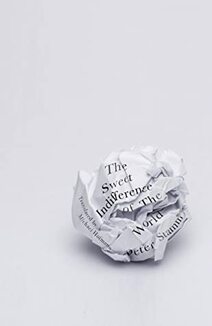
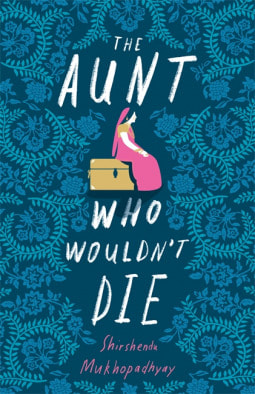
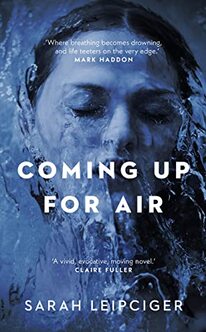

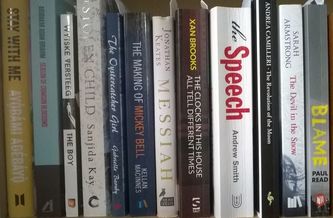
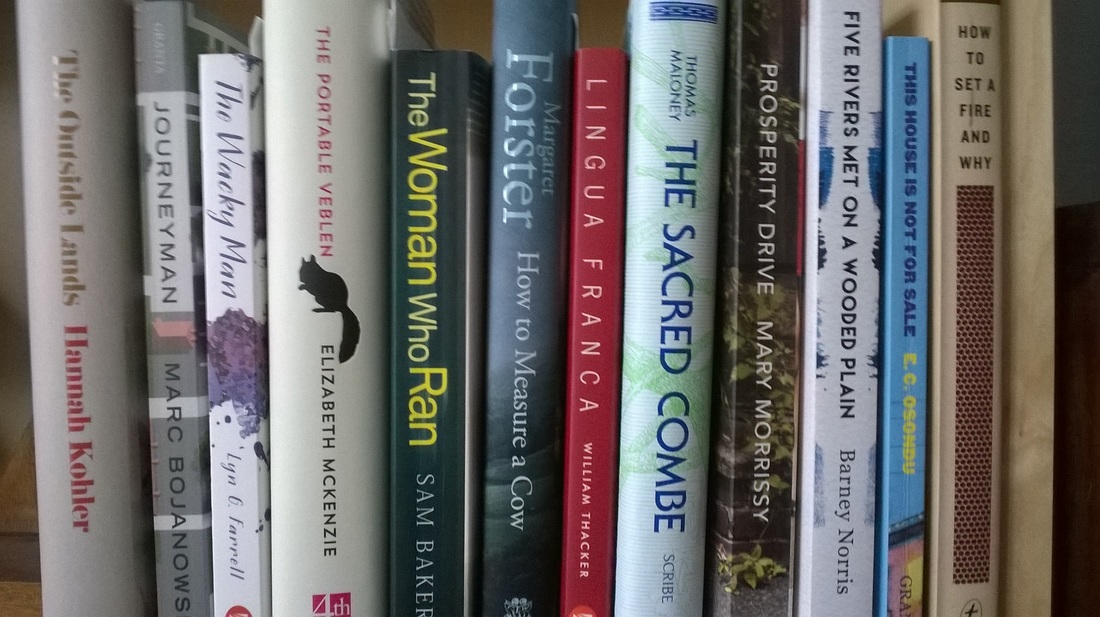

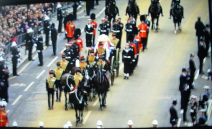





















 RSS Feed
RSS Feed





















